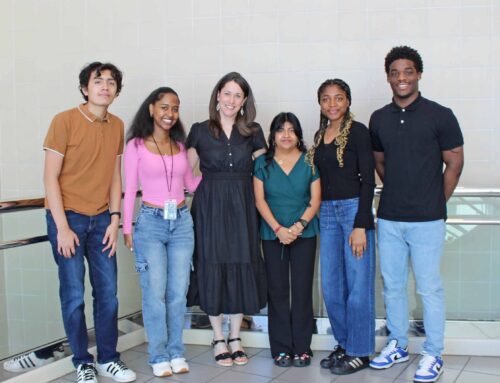By Mary Ukiri
How are we feeling? A legitimate question. There is either much reasoning behind it or none at all. A question that no amount of words could ever honestly answer. We are left to give an answer that might suffice for the situation it’s asked in. The answer, being long or short, difficult or easy, truthful or dishonest, or even another question, “why are you asking?” The truth is one of the most challenging things to do as a human being is to provide an answer that thoroughly answers that question. We struggle to know how to put the answer into words; we use the wrong words or expressions that describe the complete false feeling. All we know is the feeling is there, whatever it is, it’s there. But we only know this because we feel it, we might not understand it, but we feel it. The feeling might control our actions, fortunately, or unfortunately. The inability to express how we feel creates pain within us, a stinging, unsatisfying pain. This is because we are only left with the question, “Why can’t I make them understand?” Or even slightly worse, “Why can’t they understand me?” So we start to give names for our newly acquired disability. Stand-offish maybe? Introverted even? Perhaps antisocial? We know what it is that fits us because we feel it. Never forget that what caused this whole bittersweet situation is because we feel it. Only we do, no one else. That’s the problem. We cannot share how we are feeling with another person except through words. Words that are limiting, that feel like they do not survey what we feel, that are deceiving, that are weightless and heavy at the same time, that are absent sometimes when we need them the most, that might mean something else; the wrong definition, that may come out in the wrong tone, that races our minds when we attempt to use them. Words are all we are left to express our feelings with, to answer the question with. To convince ourselves and others that we have an answer to “How are we feeling?” Once again, fortunately, or unfortunately. “Choose your words wisely.”
There happens to be another response to the seemingly unanswerable question that has been thrown at us: silence. We can say nothing. No words. Just silence. For a significant number of reasons. Maybe our minds simply cannot generate an answer, or even slightly more frustrating; it just refuses to. Maybe we don’t believe that person has the right to know how we feel. Maybe we are more concerned with how the person will feel after they discover how we are feeling. Or maybe we just sit there in silence in an eternal hope that the person just might get the answer to the question without us having to say a word.
We might also choose to make use of the undefeated means of expressing our feelings through facial expression. Undoubtedly one of the most deceiving methods we can deploy to answer that question. “She always has a smile on her face. I wish I can be that happy,” or “He’s always frowning — every single time. I would hate to have a life like his.” We have come to a time where we can restructure the muscles of our face into communicating with our fellow humans — passing across a message. Once again, honest or dishonest. And once again, fortunately, and unfortunately. We might just answer that question with a smile or maybe even a frown if we feel the need to employ even more face muscles solely to answer. We know the truth because we know the feeling. We know if whatever it is we have on our face is indeed an accurate depiction of the feeling we are having inside. Sometimes we are incredibly embarrassed by these expressions. It might involve a very determined, running substance escaping our eyes — a very familiar substance to all of us. Sometimes we choose not to let the outside world view this very substance. Or sometimes, we deem a few other humans fit enough to see us release this substance from our eyes. Perhaps these substances carry way more weight than words ever could. They have so much more feeling than some of us can ever put into words. Perhaps the release of this substance makes us look weak. It attracts much more attention. More attention means more of this legitimate question “How are we feeling?” And so we might choose to use the opposite expression. A smile. A chuckle. Anything that can prevent all the consequences of being truthful. We decide to be deceitful. Sometimes even to the ones we love. But we still have that feeling. Good or bad. Sometimes we wish it away. Other times we wish it will stay for the rest of our days. Sometimes when we are alone, it relieves us — because we are now alone. There is no one to pose that question to us — nothing to worry about. And we are left with us. We have the answer….we are the only ones that ever will.
Now that we have made use of one of the methods to answer our question, we expect a reaction. “Good to see you’re doing great! Just checking up on you,” or “I would’ve never imagined you felt this way.” We tend to expect the reaction we will get. That’s why we selected the methods above. But an answer that might completely blow our minds, might even throw us into all types of disbelief, is the unfailing, “I understand.” We might place much emphasis on the fact that they responded with those profound words. Do they understand? Might there be a flickering chance that maybe someway and somehow they know this feeling? That maybe they know because they feel the same way? Or maybe they are just saying that in an attempt to respond to my answer. Maybe they are just two…words. Just words. We return to the role of words. We struggle to be able to determine what those simple words might mean. It has endless possibilities of what that might mean for us. It can determine if we can share a feeling that may even be a burden, or if we have to feel once again that stinging, unsatisfying pain, fortunately, or unfortunately. If this person truly understands why? Why do they understand? Why do they know the feeling that we feel? We long, and we hope for a longer response than just two words. We hope that they would be truthful so that we may just find the solace that we need to transfer how we are feeling to answer our question. It has become our question because we have somehow managed to answer it — our question. We might feel the need to pose a similar question to them because we are just dying to know why on earth they would understand how we are feeling. What could have happened? We ask. We might even decide to ask him or her. And then at that moment, we switch roles. We become the one who asks, “How are we feeling?” And then in that very moment, the cycle repeats itself. The whole process of answering begins again. An endless possibility of outcomes unfolds at that moment. Maybe new information? An emotional bond? A new friend? An enemy? We would find out. Eventually. Fortunately or Unfortunately.







